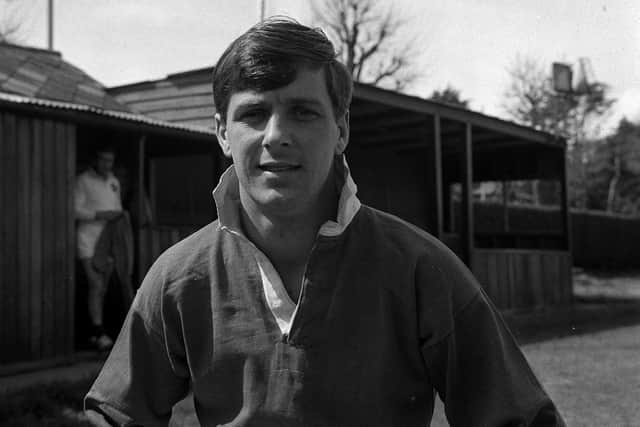Barry John: The mesmerising Wales and Lions fly-half who downed All Blacks and became rugby's first pop star
Barry John was arguably rugby union’s first superstar and a mercurial player whose wizardry gained comparisons with footballing genius George Best.
Nicknamed ‘The King’ by New Zealand journalists after he famously orchestrated the All Blacks’ downfall during an unforgettable Test series against the 1971 British and Irish Lions, John was rugby royalty in anyone’s language. A miner’s son from Carmarthenshire, John, who has died at the age of 79, enjoyed a spectacular career for Llanelli, Cardiff, Wales, the Lions and Barbarians.
Advertisement
Hide AdAdvertisement
Hide AdAt international level, it might have lasted only six years before he announced his shock retirement, citing pressures of fame and expectation as he stepped down before his 28th birthday. But John’s impact on the sport could never be understated as an imperious fly-half whose seemingly-effortless ability to beat defenders often defied logic and gained him worldwide admiration.


In his autobiography, John’s famed half-back partner Sir Gareth Edwards wrote: “He (John) had this marvellous easiness in the mind, reducing problems to their simplest form, backing his own talent all the time. One success on the field bred another and soon he gave off a cool superiority which spread to others in the side.”
And another revered Wales and Lions colleague, Gerald Davies, said: “Whilst the hustle and bustle went on around him, he could divorce himself from it all. He kept his emotions in check and a careful rein on the surrounding action. The game would go according to his will and no-one else’s.”
Born in the village of Cefneithin to William and Vimy John, he was one of six children. All three of his brothers – Delville, Alan and Clive – played rugby. John began his career at Llanelli, making a first team debut against Moseley two days before his 19th birthday in 1964. Two years later, he was capped by Wales and in 1967 he moved to Cardiff, where a partnership with Edwards quickly began to flourish.
Lions tours followed in 1968 and 1971, with that latter trip remaining the only time New Zealand have suffered a Test series loss to the Lions. John scored 30 of the Lions’ 48 points across four Tests, and the flickering black and white television pictures showcased him in all his glory as a player who, like Manchester United star Best, often performed as though from a different planet. Adulation naturally accompanied him – he was third in the 1971 BBC Sports Personality of the Year behind winner Princess Anne and runner-up Best – and took part in the corporation’s ‘Superstars’ programme alongside fellow household names such as Bobby Moore, Jackie Stewart, Joe Bugner and Tony Jacklin. Then, 25 caps into his Wales career and after playing five Tests for the Lions, John called it a day. He made his announcement in the Sunday Mirror newspaper, stepping away at a time when he was the sport’s biggest name.
“I was the first rugby pop star, superstar, call it whatever you want,” John recalled in an interview with Wales Online. “I was third in BBC Sports Personality, then a month later I was the first rugby player to be the subject of ‘This is Your Life’. I was coming off the pitch against England at Twickenham and there is Eamonn Andrews with his big red book. I didn’t want to retire, but it was the circumstances. People didn’t understand how you had to go to work, how you had to be fit for international-level rugby.
“I was getting lethargic, tired. You can’t be like that on the international stage, especially at number 10. The invitations just flew in thick and fast. I had no time to myself, just knew I wasn’t as sharp mentally or physically as I wanted to be. I was up there (North Wales) doing a promotion for the bank. Youngsters were out, lots of people to greet me. I said a few words, and as I was being introduced to someone, she curtsied. Not a major one, a little one, but a curtsy nonetheless. That convinced me this was not normal. I was becoming more and more detached from real people. I didn’t want this any more.”
John’s career might have been relatively short and sweet by modern-day standards, but his legacy was one that most players could only dream of. Wales won three Five Nations titles, a Grand Slam and two Triple Crowns during his stint on the international stage, and he remained in rugby after playing, reporting and writing columns for the Daily Express and Wales on Sunday.
John, who lived in Cardiff, is survived by his wife Janet and children Kathryn, Lucy, Anna and David.